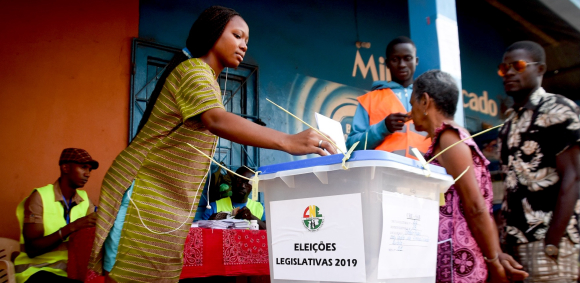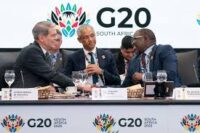Lesotho has officially declared a national state of disaster in response to a worsening economic crisis driven by youth unemployment, widespread job losses, and uncertainty over punitive US trade tariffs introduced by President Donald Trump earlier this year.
The announcement was made by Deputy Prime Minister Nthomeng Majara, who said the declaration will remain in effect until 30 June 2027, allowing the government to take emergency actions under the Disaster Management Act to mitigate the severe economic and social impacts.
According to official data, Lesotho’s overall unemployment rate stands at 30%, but youth unemployment has surged to nearly 50%, placing tens of thousands of young people at risk in a country heavily reliant on textile exports and foreign aid.
The situation deteriorated after the United States, under Trump’s leadership, imposed a 10% tariff on Lesotho’s goods, with an additional 50% tariff initially announced but later paused. Lesotho, a landlocked nation surrounded by South Africa, was one of the most adversely affected countries under this policy shift, despite its small size and heavy economic dependence on the U.S. African Growth and Opportunity Act (AGOA).
AGOA had previously allowed Lesotho to export textiles and apparel to the U.S. duty-free, supporting an industry that provides approximately 40,000 jobs. The abrupt change in tariff policies, along with uncertainty over AGOA’s renewal—set to expire in September 2025—has led major U.S. buyers to suspend orders, raising fears of a collapse in Lesotho’s manufacturing sector.
Trade Minister Mokhethi Shelile recently told South Africa’s Moneyweb that American companies were reluctant to place new orders due to the unclear trade policy landscape. “They don’t understand what is going to happen,” Shelile said, highlighting the economic paralysis caused by the looming uncertainty.
Lesotho’s economic troubles have been compounded by the termination of USAID programs and uncertainty surrounding continued support from the U.S. President’s Emergency Plan for AIDS Relief (PEPFAR), a critical lifeline for the country’s public health system since 2003.
In 2024 alone, Lesotho–U.S. trade was valued at $240 million, with the vast majority consisting of exports from Lesotho to the U.S., particularly in the form of jeans, textiles, and diamonds. These exports are now threatened by Trump’s broader goal of reducing America’s global trade deficit.
The state of disaster underscores the mounting economic pressure on Lesotho’s government, industries, and young population. With tens of thousands of jobs potentially at risk and critical health and development aid hanging in the balance, Lesotho’s leadership is urging international partners, especially the United States, to reconsider and renew AGOA and restore vital aid programs that have been instrumental in stabilizing the nation’s fragile economy.
As Lesotho braces for the fallout, experts warn that the combination of high unemployment, declining exports, and reduced foreign support could deepen inequality and social unrest in a country already grappling with poverty and limited economic opportunities.














Leave a comment